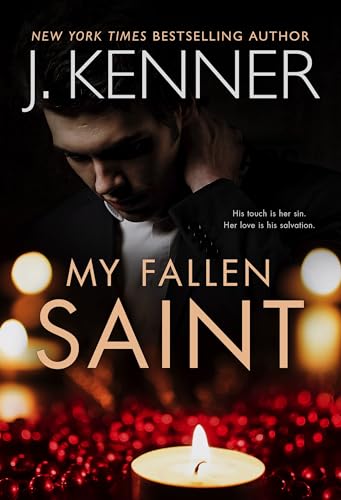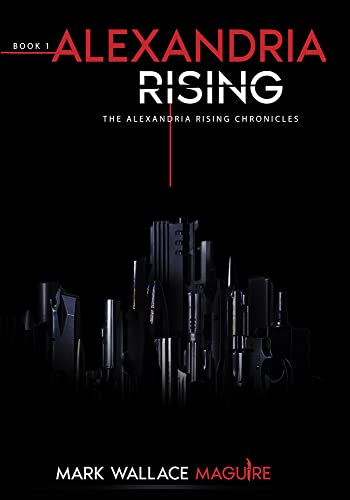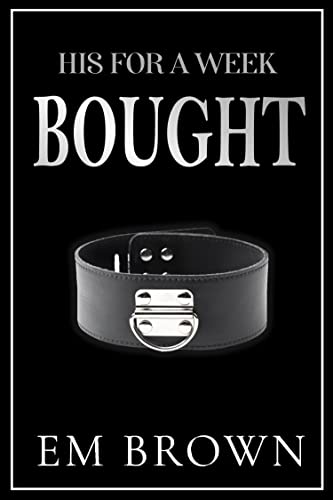“I want more!!…a great addition to the…series. I cannot wait for the next installment…”
Just out! It’s the latest book in S.J.Wright’s intriguing paranormal romance series, Undead in Brown County…
Michael thought his days as a vampire were behind him. But dangerous forces threaten the new life he’s built with Sarah. Can their love survive?
The Vampire’s Consort (Undead in Brown County Book 5)
an excerpt from
The Vampire’s Consort
by S.J. Wright
Copyright © 2014 by S. J. Wright and published here with her permission
PROLOGUE
Summer 2013
From the road, there wasn’t much to see–only the gravel driveway that gently curved up towards where the house used to stand. The things she could see–the pasture fence, the trees–they looked like forlorn sentries guarding an empty castle. Where the driveway met the road, the steel gate had come loose from one of its hinges and was lying half on the ground, the battered steel sinking into the wet overgrown weeds.
Sarah scuffed the toe of one of her hiking boots against the gravel edging the road. She wasn’t sure why she had wanted to come there. Alex had understood why, but he didn’t try to explain it. He was waiting for her back at the cabin.
There was no way for her to tell if the supernatural perimeter was still active. There were no vampires or werewolves around–at least none that she could see. What she didn’t know was there were four sets of eyes on her at that moment, watching from a discreet distance. She didn’t sense them at all. But she was only human. Alex would have been able to catch their scent, but he was ten miles away waiting for her return.
The wolves were motionless against the backdrop of green summer leaves. Each of them was a different color. One gray. One black. One brown. And the largest of them was golden, with chocolate-colored eyes that were fifty times as sharp as a human’s. The golden one lowered his massive head to inhale more of Sarah’s scent. They were standing in a grove of trees on a hill a half-mile from the entrance of the abandoned Woodhaven Inn property. The corn plants in the field before them stood resolutely, only waving slightly in the warm breeze.
Sarah dug both hands down into the fleece pockets of her old jacket and sighed. Life had changed so damned fast. It seemed like only a few days ago, she had been changing sheets and cooking for guests of the Woodhaven Inn. Her father had put decades into building up the family’s country inn. Now it was gone.
Actually, it had been nearly a year and a half since Sarah had run from the events unfolding on her family’s property. Now she was planning on leaving her hometown and putting down roots somewhere else. It seemed unnatural to her.
Perhaps it was time to spread her wings. To break away from old beliefs and antiquated ideas about who she was supposed to be. Her father was gone. The Inn was destroyed. Her sister, Katie was doing time in a Brazilian vampire rehab program. Yeah. Sarah’s life had definitely not turned out as she had hoped. What she had gained, though, was simply irreplaceable.
Michael.
Just the thought of him sent tiny tremors through her limbs. Sarah’s body came alive when she thought of his seductive icy gaze and thick black hair. How had it come about? Despite all the obstacles they had encountered along the way,, they had managed to hold onto each other.
This time, it was different. The love Sarah and Michael had for two little girls has changed their lives. But, they were not ordinary little girls. Each of them possessed amazing paranormal abilities, the depth of which had yet to be discovered. What Sarah and Michael knew without a doubt was that these precious girls had to be protected. Even if it meant that Sarah and Michael had to part ways in order to assure the safety of the girls. Even if Sarah’s heart crumbled into dust on an isolated country road in southern Indiana. But, she was not one who would easily give up on those she loved. She knew she had to make an enormous sacrifice.
The wolves’ collective gaze followed her closely as she got back into the truck and drove off toward the small artist-colony town of Nashville. The golden one turned to his brothers and sister before glancing back once more. One by one, each of them turned and faded into the shadows. Sarah drove the truck over a hill and disappeared.
Chapter 1
“You’re being unreasonable.”
The two figures standing on the porch of the weathered log cabin were different in many ways, and the tension between them was strained and palpable. He was a man with a past—a dangerous one. She was older and had been his mentor once.
Teddy hadn’t seen Michael in many months. She found it was easy to identify the physical changes he’d undergone since he’d transformed from vampire to human. His skin was, once gain, a warm hue and he had grown a beard and mustache. He didn’t move in quite the same unconsciously graceful way characteristic of the undead. As for the psychological changes, only Sarah could take credit for the foreign ambience of happiness that seemed to surround the man.
Man, she thought. How strange.
She shook her head to clear her thoughts and continued in a hurried tone. “Michael, the vampires in this region need a leader. You were supposed to be that leader. Sam and Anne were to be on the council, but now one will have to take the throne. This is not about ambition; it’s about securing proper leadership for North America. We have to try to maintain some control, Michael. The rogues are getting out of control and the mess in Indiana has drawn far more attention than we could have imagined.”
“What do you mean?”
“The ATF opened an investigation into the explosions at the farm.”
His dark eyebrows rose in concerned surprise.
“Shit. When did this happen?” he asked.
“A week ago. My connections at the federal level managed to shut it down, but then Homeland Security got involved. I need help, Michael. Sam and Anne can do their part. You know we don’t have any other shifters like them.”
Teddy rubbed nervously at her left wrist. Michael noticed the gesture and his clear blue eyes narrowed. Teddy was very rarely nervous about anything. She was known for being a paragon of self-control and had been since he’d first met her nearly two centuries earlier.
“I don’t like it, Teddy.”
“I’m sure you don’t. But, we’re in a difficult position right now. Our survival may be on the line.”
He sighed. “Why don’t you take the crown?”
She met his eyes with a withered look. “You know why. I’ve worn a crown before. I’ve done my duty. Once I get one of the girls firmly in place and the Council secure, I intend to retire permanently. I’m sick of the backbiting and wars. I’ll be a quiet, mild-mannered old woman living in a cottage on the coast of Wales.”
Michael nearly laughed out loud. “Doubtful.”
“In any case, the girls need to come with me.”
He didn’t like the idea of the girls being shoved back into the political structure of a barely-contained vampire power play.
“Will they be safe, Teddy? Can you guaranty their safety?”
“I will do everything in my power to protect them.”
Usually, Teddy’s word was gold. But, what if her protection wasn’t enough?
“Nevertheless, you’re worried,” Michael said.
“Yes. The council has fractured into opposing groups. Nathaniel Croft and his cohorts are trying to convince everyone that the crown belongs with him. If I expose his crimes, it will implicate Charlie.”
The memories of his time as a vampire were sometimes a little vague. His human brain didn’t have the same capacity anymore. But, he did remember Victoria, one of the few vampires in the world that he truly trusted, telling him about Nathaniel Croft and the massacre that had occurred in 1996 and left the entire vampire race reeling.
Nathaniel Croft was an ambitious Scottish vampire who had managed to get a seat on the council because he had many powerful human friends and vampires valued the inside information he occasionally provided. He emigrated from Edinburgh to the states in 1912 and been turned into a vampire as soon as he had reached Ellis Island. He claimed he did not know his creator.
In the fall of 1996, members of a small crime gang, led by convicted bank robber Tom Dawson, made an attempt on his life. In retaliation, Croft and his vampire underlings descended upon the Dawson family compound and massacred everyone there.
“The Dawson family,” Michael recalled. “Vic told me. Charlie was involved in those murders?”
“No, but he covered for Nathaniel and ended up bribing a Boston police chief to get them to close the case before it was made public. Now that official is threatening to reveal everything they found at the murder scene. Croft and his group will place the blame squarely on Charlie. They’ll make an example of him before the whole council.”
“And they’ll execute him without hearing his side of the story.”
“It’s possible. Croft has a great deal of influence these days.”
Michael shook his dark head. Waves of frustration flowed over him.
“It’s a hell of a mess, Teddy. What’s going on with the Arizona camp?”
Teddy’s eyebrows set in a firm disapproving line as soon as the words Arizona camp left his lips. It wasn’t a very pleasant topic of conversation, even on the best of days. Lumped together with the possibility of the girls leaving, Michael instantly regretted asking her about it.
Ten years ago, the vampire council had opened a detention camp about eighty miles east of Phoenix. Its original purpose was to incarcerate dangerous vampires who recklessly killed humans. Vampire nature being what it is, investigating every human death was rather pointless. What concerned the council were the rogues. When one of the undead let his or her lust for blood completely overrule all propriety and necessary secrecy, they were deemed a rogue. Keeping the secret of vampire existence was considered a golden rule. If a bloodthirsty newly-turned vampire killed three or more humans within a limited time and did not bother to cover their tracks, he or she could legally be detained at the Arizona camp.
The force of nature that held the supernatural creatures inside the detention camp was a mystery to many. Only a handful of humans knew the secret of the invisible force field that could keep vampires and other supernatural beings from entering or leaving designated areas.
“We sent a new rogue in there last month. He killed off all but three of the others. Mr. Bennett’s alcohol consumption is getting out of hand. Charlie went out there to check on the situation two weeks ago. He found Mr. Bennett in a deplorable condition. This can’t continue. If we can’t find Jackson and get him to help us, we’re going to have to go in and terminate the whole operation. Croft has repeatedly brought up the fact that Katie wasn’t sent there. He has been telling the council that my recommendation for the clinic in Brazil shows favoritism. They’re listening to him.”
“You can’t seriously be thinking of bringing in Jackson. He can’t be trusted. Besides, Victoria told me he hasn’t been seen anywhere. Tracking him down in a nationwide hunt would cost manpower that you don’t have.”
Michael’s memory gaps included a lot of what had happened when he first met Jackson Bennett. The young Native American had been brought to Woodhaven Inn by one of Michael’s greatest enemies. After attempting to rape Sarah, Bennett was not only allowed to stay,but he began developing a relationship with her. Michael knew the connection between Jackson and Sarah was based on similar family backgrounds, but it had put a wedge between him and Sarah that he hated to remember. Ultimately, she had remained faithful to Michael, if you disregarded a few kisses and embraces.
“What other option do we have besides Jackson? You want to send Sarah out there?” Teddy asked, exasperated.
“Hell, no. Besides, she would never agree.”
“If Jackson can’t be apprehended and brought around to our side, we’re going to have to destroy the whole camp, Michael.”
“Who is the new rogue?”
“He’s a refugee out of the Middle East. Possibly Turkish. He won’t speak to our interpreter. We picked him up in Miami two months ago after getting a warning call from our contact in Syria.”
Michael drew his fingers across his face with an aggravated groan. It was clear that Teddy needed someone with experience to help get these crises under control. He wished she hadn’t come to him with the whole mess. He’d willingly stepped away from problems like these so that he could enjoy a moderately normal life with Sarah and the girls.
Teddy gave him a sympathetic smile. “Look, I understand that you’re going to miss them but, I need their help right now. They can get into and out of places that no one else can. They can bring me back valuable intelligence that might help resolve all these problems.”
He turned and faced the woods to the north of the cabin. The woods were a little quieter than usual. Perhaps the birds and other peaceful creatures sensed the age and experience of the regal vampire standing on the porch. Michael could understand if they felt intimidated. They probably wanted only to curl up into their cozy nests, quietly waiting until the unusual creature had moved on.
Michael couldn’t settle down into this warm cabin and wait it out. If he could, he would gather Sarah in his arms and stretch out with her in front of the fireplace inside, eating popcorn and watching old movies with the girls. But, he knew there was no going back after this conversation with Teddy.
“Let me ask you something,” Teddy said softly.
“What?”
She hesitated for a beat and then said cautiously, “Would you consider the idea of being turned back into one of us?”
His gaze slid to the big window next to the front door. The curtains were still closed and the lamp hadn’t come on. Sarah was still asleep, but the girls would be awake and alert. They were probably listening from their second-story bedroom window.
“I don’t see how I could do that and keep Sarah. It wouldn’t work, Teddy.”
“You have already thought about it.” She noted the way his gaze slid away from her in a guilty gesture. “I can always read you, Michael.”
He waved a dismissive hand. “It was only a passing idea.”
She smiled gently. “You miss it?”
“Being undead?”
He caught himself returning the smile, although it came out as a bitter one. “Some of it; the speed and strength; the confidence of knowing I can keep those I love safe from danger.”
He leaned back against the outside cabin wall, the frame of one window pressing into the skin of his upper back.
“I thought we would be safe out here. I’d hoped the four of us could live a quiet life and not have to deal with any more vampire issues.”
Teddy had the indecency to laugh.
“I think I’ve told you more than once that running away from problems only makes them much larger. You became much more than a vampire over these few centuries, Michael. You have the ability to lead and influence even the most stubborn of our kind. There’s no point in denying it. However, I do understand that peace is something to be cherished; especially, when that peace can be enjoyed with those we hold most dear.”
Leaning her head back, Teddy took a deep breath of the country air surrounding her.
“Sometimes I think our kind would be far more content without the ability to love others; especially humans.” She spoke the sentence with less than her usual degree of arrogance.
Michael wasn’t convinced. “Our existence would mean absolutely nothing if that were the case. The only thing that separates us from monsters is our ability to connect with humans.”
“You sound as if you still are one of us.”
“I am in some ways.”
A creaking board on the side porch stairs alerted them to the presence of another. It was Samantha, Michael’s adopted daughter. Her sister Anne stood slightly behind her. They both wore expressions of intense sadness. Anne’s eyes were brimming with tears, but only Teddy could see. Michael didn’t have the power of vampire vision anymore.
“You’re really going to take us away?” Sam asked.
Teddy smiled in her solemn way and nodded. “I wish I didn’t have to. I know you’ve been very happy here. I’m sorry, darlings.”
“When, Teddy?” Anne asked.
“Tomorrow. I thought I’d give you a chance to say goodbye properly.”
“I knew it couldn’t last. I hoped it might.”
There was resignation in Sam’s eyes as she looked at Michael and moved forward into his embrace slowly and wrapped her little arms around his waist. Anne disappeared into the deep shadows around the porch with a burst of speed.
Sam cast one harsh glance over her shoulder at Teddy. There was no warmth in that look. Teddy turned her head away from Sam before she could see the hurt in Teddy’s eyes. These girls meant more to her than anyone could ever guess. To know that they both might hate her for what she was about to do was a sobering thought. Of course, if they ever knew the full truth of how they had ended up as vampire orphans, Teddy knew the ramifications would be fatal.
“I’ll return early tomorrow evening to take them to the airport,” Teddy said. Then she turned briskly away with her narrow chin up, descended the stairs of the porch, and got into her dark SUV.
Sam and Michael watched her drive away. The red lights faded and then disappeared over a hill in the road. Sam released Michael’s waist and looked up at him with solemn blue eyes.
“Would you really do it? Become a vampire again?”
His voice wavered when he answered her. “I don’t know.”
“Anne won’t go with her, Michael.”
“What do you mean?”
“She told me that if Teddy ever came back for us, she would run. And that we might never see each other again.”
He shook his head. “No, Sam. She wouldn’t do that.”
“She was serious. When Teddy leaves tomorrow, she’ll only have me. Anne will be gone. She may be gone already. We’ve talked about what might happen, Michael. Anne refuses to do anything further for Teddy or the council. After being here with you and Sarah, she doesn’t want any part of the life we used to live. It will hurt her terribly to leave, but believe me when I tell you—she will be gone by the time Teddy gets here tomorrow night.”
Michael knew that if he was still a vampire, he could easily track Anne if she ran away. He could follow her and try to get her to see reason. He could reassure her that he would never let her be used as a spy or a royal replacement. But, he couldn’t do that as a man.
The wind was picking up. Sam watched as it whistled through green summer growth and picked up bits of leaves left over from the fall season, scattering them across the clearing in front of the quiet cabin. Then she turned away and went inside the cabin.
Michael stood alone on the porch and contemplated the question of his own mortality, turning the possibilities over and over again in his head and trying not to wonder what would become of Sarah if he were a vampire again.
He loved being with Sarah. She made everyday activities into games. She made him laugh so hard sometimes that tears seeped out of his eyes. She was an incredible mother to the girls. The four of them had blended together into a united family. How could he allow Teddy to take them and shove them right back into the world of vampire politics and head games? He wanted the girls to remain with him. But, what kind of protection could he provide as a mere mortal man?
For forty-three minutes, Michael stood there. His clear blue eyes skipped from the waving treetop branches up into the vast ocean of a brilliantly illuminated starry sky. His breath hitched harshly in his throat, burning inside him. Oh, Sarah. God forgive me.
Before he went back inside, he stopped in front of the oak door and used his shirtsleeve to wipe the moisture away from his eyes. He looked at the damp spots on his sleeve with a kind of wonder. His first tears as a human in this modern world. Whatever happened next was going to break hearts and he hated that he had to be the one to make that decision.
Chapter 2
Inside the cabin, Sarah slept fitfully in the bed she had shared with Michael for over a year. She had trouble staying asleep when he wasn’t there with his arm around her waist and his warm breath in her ear. His presence brought her the kind of peace she’d been searching for since her father had died.
Sarah Wood was twenty-five years old. She lived a comfortable life. Her cabin deep in the woods of southern Indiana kept the bitter, sometimes painful memories of her parents at bay. It was a fresh start; one that she needed badly.
The cabin floors creaked and the front screen door was excessively noisy. Sometimes the water heater in the utility room went out of commission and left the cabin’s inhabitants with only cold water for showers. There were water stains on the ceiling in the girls’ room where the roof had leaked. Michael had fixed the leak, but had never gotten around to replacing the drywall.
It didn’t matter to Sarah. She knew that when she rounded a corner of the cabin, she wouldn’t remember her father ever being there. She wouldn’t have to push through the pain in order get through her day. When she replaced the sheets on her bed, she didn’t have to fight against memories of the bad things that had happened in the bedroom of the house where she had grown up.
She didn’t have to see anything painful. This home was all new to her. There might have been things she missed about her childhood home—perhaps her father’s clock that always sat on the mantle in the parlor. She could recall with total clarity the sounds it made. Now she kept the time with a cell phone or a digital display on her microwave in the kitchen.
Sarah had managed to forge a new cocoon for herself that didn’t include very much influence from the outside world. It was a warm happy little home that kept the people she loved the most close to her.
Michael, Sam and Anne were her world. Nelly came often to visit. She adored the girls and was pleased to spend as much time with them as possible. When Michael and Sarah needed some alone time, Nelly would have the girls spend the night at her little brick bungalow in Greenwood.
This security brought out a side of Sarah that most had never seen before. Instead of avoiding acquaintances when she went to town, she was more likely to stop and ask them about their family. The smile on her face while chatting with them was obviously genuine and they responded well to the changes they saw. Her laugh was bubbly and fresh to any ear that might hear it.
She was half asleep when she heard the screen door downstairs open and close. Once, then again. She listened closely to hear the turning of the deadbolt turn with a squeal. A few moments later, there came a light tapping at the bedroom door.
“Sarah?”
It was Sam.
“Come in, honey.”
Her adopted daughter came into the bedroom and sat on the edge of the bed. Sarah reached over and turned on the lamp on her nightstand. When she saw the dejected expression on the child’s face, she frowned.
“Sweetie, what’s wrong?”
It was rare to see such sadness in the eyes of Sam. She wasn’t exactly crying, but Sarah had a feeling she was close to doing so. She wrapped her arms around the little girl and held her for a few moments, smoothing back Sam’s silky blond hair with one hand.
“Can you tell me what’s bothering you?”
“Teddy was just here.”
Michael appeared in the bedroom doorway. “Sam, come here. Let me talk to you for a few minutes.”
Sarah let her go to Michael and settled back against the pillows. “Michael, is everything okay?”
“It will be. I’ll explain everything. Just let me get her settled.”
He guided Sam out into the hall. “How about a cup of hot chocolate?”
Sarah sat back against the plump pillows and watched as the light from the hallway narrowed slowly as the door closed. She didn’t feel right. She knew that they were both keeping something from her. Sliding her lean legs over the bed, she rose and drew on a peach satin robe that she’d draped on the bench at the foot of their bed.
As carefully as possible, she opened the bedroom door and tiptoed down the hall. She wasn’t above eavesdropping if it involved the ones she loved. Nobody was perfect. If something was really bothering Sam, she wanted to know what it was. She had a right to know.
Downstairs, Michael pulled two packages of hot cocoa out of the pantry. Sam sat at the kitchen table. She watched him fill two mugs with water and put them in the microwave.
As the water was heating, he turned to her.
“I don’t want this any more than you do.”
He took a box of tissues from the kitchen counter and brought it over to her.
“If you need to cry, let it go, Sam. I can tell you’re almost at that point.”
She pulled four tissues from the box. They both turned as Anne entered the room from the adjoining den. Anne’s short curly dark hair was messy. She had red streaks running down her soft cheeks. Michael noticed and nodded towards one of the other chairs. “Sit down, Annie.”
He found a soft white cloth under the sink. While he was wetting it down under the faucet, he studied Anne.
Will she run?
The microwave beeped three times. Michael took the cups out and stirred the hot chocolate mixture into the water. He kept a steady gaze on Anne. She was who he was truly worried about. She was the stubborn one. She didn’t cut corners, she never left a project unfinished, and she never changed her mind; especially when Teddy was involved.
Michael put Sam’s mug down and then put the other one in front of Anne. He kneeled beside her and began cleaning the blood tears off her face with gentle patience. He saw something in that expression that said to him: I’m ready to fly. He stood and leaned back against the kitchen counter. “Sam tells me you won’t be here in the morning.”
“Tattle tale!” Anne hissed.
Michael frowned at her.
“She did the right thing by telling me. We would have all been very concerned about you, Annie.”
“What is going on with you guys?” Sarah asked, as she walked into the kitchen with her eyes blazing and her peach satin glowing eerily in the low light.
“What don’t I know?”
The girls both looked away from her. Michael sighed and reached out a hand. He wanted to gather her up and hold her before she heard what was coming. She was having none of that. She smacked his hand away.
“No. You tell me what the hell is happening. Now.”
None of them wanted to say the words. They knew that the Sarah they loved would be transformed into someone else. There would be anger, denial, rage, threats, and probably several broken dishes. Whenever Sarah was confronted with loss, the temper she was famous for quickly made its appearance. But, she’d lost nothing from the moment these three amazing people became her own immediate family.
Michael took a calming breath and turned to the girls. “Sam, call Nelly and ask her if you and your sister can spend the night in Greenwood.”
“Good idea,” Anne whispered.
Sarah threw up her hands. “Why? Tell me what’s happened!”
“I will tell you everything tonight, Sarah. But the girls need to go with Nelly,” Michael answered gently. “I won’t say a word about any of it until you are totally relaxed.”
Sarah gazed with soulful blue eyes at Sam and Anne; they had become her daughters over the past year. When they were hurting, she was hurting. She was fiercely protective. Not knowing the reason for their current heartache was incredibly hard for her to bear.
Sarah looked at Michael. There was an uncommon level of trust between the two of them. They had suffered. Unquestionably. They had fought against ancient enemies and forces unseen. Not only had they survived, but they’d also managed to hold onto each other throughout that tremulous period in their lives.
Sarah thought of all this as she stood in her little kitchen with her own little family. She knew that trusting Michael was essential to holding onto her peace of mind. It was her faith in his love that meant everything.
He took one of her hands and brought it up to his firm lips in a gentle kiss. “Alright?”
Tears were beginning to glisten in the corners of her eyes. but she nodded and tried to smile.
Trust in the fact that he loves you, Sarah told herself.
Chapter 3
It was late. Nelly had picked up the girls and Sarah was on the front porch swing, wrapped in a thick red afghan from the den. Nelly had picked it up at a little shop in town and said it reminded her of one that Sarah’s father had at one time. It was the first blanket she always grabbed if she was going to sit outside. She believed that the spirit of her father was close when the afghan was wrapped around her. It wasn’t his blanket, but it was the only thing she had to remind her of the man who had raised her.
There was really nothing left after the fire. It had seemed so strange when her sister showed her the journal with the blackened cover. Katie had given it to her the day after Michael had gone with her sister to see if anything was left. Sarah couldn’t really bring herself to go back.
Sadie had been missing, but turned up wandering the front yard of Mike and Roxanne’s house, where Sarah had been staying since the fire. The horses were found in a cornfield three miles from the house. Whiskers, Sarah’s arrogant housecat, had not been found anywhere. Michael couldn’t be very unhappy at that. He and the cat had never bonded the way he had with the huge golden retriever. Michael had made a serious effort at befriending the dog, with good reason. Of course, Sarah was not aware a shapeshifter had been watching over her for years and had been hiding behind the soulful brown eyes of a dear family pet.
A year before he passed away, Sarah’s father had invited the creature onto the property. Michael had been awake that night, like so many other nights. He was in the old cowshed, sanding down a large table he had been building when he heard a dog bark. Robert’s only dog had been a Springer Spaniel named Luther who died several years earlier.
The shapeshifter’s particular scent wasn’t completely unfamiliar to Michael’s distinguishing nose. But, there was no indication the shifter wanted to communicate with anyone. Sarah was thrilled, of course. She’d wanted another dog for years. Robert didn’t tell his daughter about the true nature of their new pet, but he knew what it was and had made a deal with the damn thing, as Michael had discovered later.
When the man brought his daughter, Katie’s cell phone out to the horse barn to show Michael how it worked, he wasn’t thinking about the possibility of the vampire getting in touch with someone. How likely would it be for Michael to actually get in touch with someone he knew from his past?
So when Robert turned to fill up the feed buckets in the horses’ stalls, Michael spent two minutes exploring all the features available. He didn’t understand the messaging very well, but he found the search button and punched in the letters from the name of a female vampire he had known for many years. A screen popped up with advertisements and in the center was the name of his most trusted friend. Victoria.
He memorized the phone number. If he could somehow get access to one of the cell phones in the Inn, he could use it then. But it was more likely every day that he would have no such chance. Robert had been gone for two months. The Inn stopped accepting reservations. Nelly and the older girl, Sarah, would sit out on the front porch on some evenings and talk about the sudden decline in Robert’s health. They had been told about the cancer finally. But the girls were angry that he wouldn’t consent to chemo or radiation treatment. Even the younger sister drove home from college during a regular school week to be there when the oncologist finally gave them the results of Robert’s MRI’s and blood counts. The younger one was Katie. She stayed only a day or so after the funeral and went back to school, leaving the housekeeper and her sister to handle the running of the family business.
The woodworking had started out innocently enough. Michael was going to build a bird feeder for the cardinals that so fascinated him. Feathers the color of blood. Black eyes patches. There was an eerie realization when he considered the juxtaposition between those little red birds and himself.
Sarah sighed.
She listened to the night sounds that had become so ingrained in her memories. A pair of owls was in the trees to the east, calling back and forth to each other in their somber tones. It made her feel sad for some indefinable reason. The cicadas were wildly loud, filling the night with their endless chirping. Sarah swatted at a mosquito that had landed on her wrist. The body of the insect had been filled with blood and left the bright red remains of its dinner on her skin.
She heard the front door open and the noisy squeak of the screen door as Michael came out. He handed her a hot cup of raspberry tea and leaned against the porch railing. When his eyes found hers in the darkness, she felt a chill travel through her. It started as a prickly feeling in her shoulders and began to drift downwards, leaving each part of her entirely frigid.
“Michael, what’s wrong?” She didn’t really want to know. Not really. It was obvious from the look on his face. Teddy had been there earlier and now Michael was very disturbed. The totality of it rose up like angry storm clouds in his eyes, turning their color to steel gray.
“She wants the girls back.” He began to move across the porch in slow deliberate strides with his eyes locked to the ground.
“You and I talked about this before. We knew it wasn’t just possible, but likely.”
Sarah put her teacup down on the porch rail and unwrapped herself from the blanket.
“Yes. We knew. Teddy probably thought it was going to be like going to camp or something for them.”
“That’s what I thought as well, when she first told me she was going to let them stay. It wasn’t just getting back to nature for them or for us.”
Her eyes were huge in her pale face as she went to him. Michael held Sarah gently with arms that did not have the power to keep this particular hurt from her.
“Why can’t she understand what she’s forcing them to give up?”
Michael moved his fingers through her soft wavy hair, smoothing it down against her back as he went on. “She never had that. Teddy grew up just trying to survive. Even after she married, she never found the kind of happiness that we have here. The whole concept of it is foreign to her, Sarah.”
“And vampire business comes first,” she whispered with her cheek against his chest.
“Unfortunately, yes.”
She leaned back a little to look into his face. There was more he hadn’t said. “What else? I know you. You’re holding something back.”
He sighed. The sound of it rolled through his chest where Sarah felt every vibration. When he spoke, his voice was heavy with mourning. It sent another chill through Sarah’s body. “I’m going to have to go with them, my love.”
Her heart felt as though it were being pried from her chest. “Just you?”
Avoiding her question, he continued. “There are threats right now, within the council—situations that could put the girls in jeopardy. Teddy has promised they will be protected, but I don’t think it’s going to be something she can control.”
“Then why take them back at all? It makes no sense!”
“There are so many issues to be handled. The situation in Arizona is becoming a nightmare. Teddy said that there is now a government investigation into what happened at the farm.”
Sarah dropped her arms from his waist and stepped back. “And she can’t handle these things? She needs you? What can you do now, Michael? Your vampire days are over.”
That was when she noticed his hands trembling. With a woman’s well-tuned intuition, Sarah knew. If the girls were in danger, Michael would do anything to protect them.
“You’re thinking of being turned.” It came out as a whisper.
He nodded. His face was steeped in shadows. There was a kind of suffering in his expression that Sarah had never witnessed before.
“I can’t leave them with her and know they’re in danger,” he said. “I can’t protect them as a human. Not effectively.”
She sat back on the swing, her face ashen.
“Sarah, I have to become vampire again. You know what that means.”
Her gaze was still unfixed, drifting across the nothingness that she saw in her future—without Michael. It stretched out before her in ceaseless ebony waves. She would drown in a world without him. She would be lost.
Sarah would want that—to lose herself as she lost him.
What Michael saw in her expression was defeat. He was determined that they would spend their last night together being loving and intimate, feeding each other the food that soon he would have no need to consume.
He reached out a hand for her. Perhaps she was stunned senseless by his news. Drawing her inside the front door, he began to employ every single skill known to man (and vampire), which would render a female lover helpless against his onslaught. Sarah hadn’t quite wrapped her mind around their conversation on the porch. But soon, it didn’t matter.
The instant his lips touched hers, her body felt as if it were drifting on some cloud in the middle of nowhere. Without fail, that gentle wave of sweetness that she always tasted on his lips would transform into something far more carnal and desperate. No man ever wants to be seen as desperate, but ultimately between the long, slow wet kisses and Sarah’s body pressed against his, the word desperate became relevant. His grey eyes closed, he tilted his head back and moaned, a chord that rang of loss and lust. That was enough to derail Sarah’s thoughts. All she could feel was desire, melting her on the inside and lighting up her skin with bursts of carnal electricity.
He began to unbutton her cotton shirt. It was something crisp and clean. It was Sarah. Her innocence, her spirit, her giving heart. As gently as possible, he manipulated the little circles away from their slots and drew Sarah’s shirt open at the waist. He didn’t resort to gentle with the bra. He ripped the back of it when it didn’t unfasten during his first attempt. Michael’s fingers were trembling.
They had managed to get as far as the stair landing leading up to the bedrooms. He was holding her wrists above her head with one hand. With the other, he was grazing the curve of one breast with the tip of his thumb. The nipple contracted and grew stiff before his touch even came close. When he felt the very tip of her hardened nipple, he growled lightly in her ear and tightened his grip on her wrists.
“You belong to me. You’re mine, Sarah.”
She nodded jerkily, trying to push closer to him. The sea of conflicting emotions going through Sarah’s body was dark chaos. He was leaving, but here he was kissing her like he’d never wanted her more in his life.
The pressure of his index finger on the inside of her glossy thigh under her denim shorts kept the fear at bay because she knew what was coming.
His finger trailed up until it reached the fabric of her pristine white bikini panties.
“I want these shorts off, sweetheart,” he whispered into her ear. The vibrations of his tones started a chain reaction that began at her right earlobe and ended in her abdomen. She trembled a little, but felt a great release building within her. He would make her scream before he was done with her.
Her skin was warm enough to radiate heat even through the cotton panties. His fingers moved lightly over the dark hair between her legs and the index finger trailed down until it was hovering over her covered clitoris.
Michael wanted her eyes on his when he touched it. He dropped her wrists and wrapped his fingers around the back of her neck, gaining her quick attention. Sarah locked her gaze on his.
What she saw there was impossible.
For the last time, my heart.
Something inside Sarah’s head snapped into place.
Jesus. He’s seriously going to leave me. This is no joke.
Rage burned inside her, pushing away all the fiery passion she’d felt. She clenched her fists at her sides and her head rose in a challenging gesture.
“This is how you say goodbye? One last time before you leave me forever, right?”
Whatever answer she saw on his face, it wasn’t the one she wanted.
Her powerful right hook came at him like a loco snake. For a moment, he thought she was joking; a brief moment. Then the impact of her punch sent him stumbling back onto the stairs against the cedar post wall.
… Continued…
Download the entire book now to continue reading on Kindle!
(Undead in Brown County, #5)























